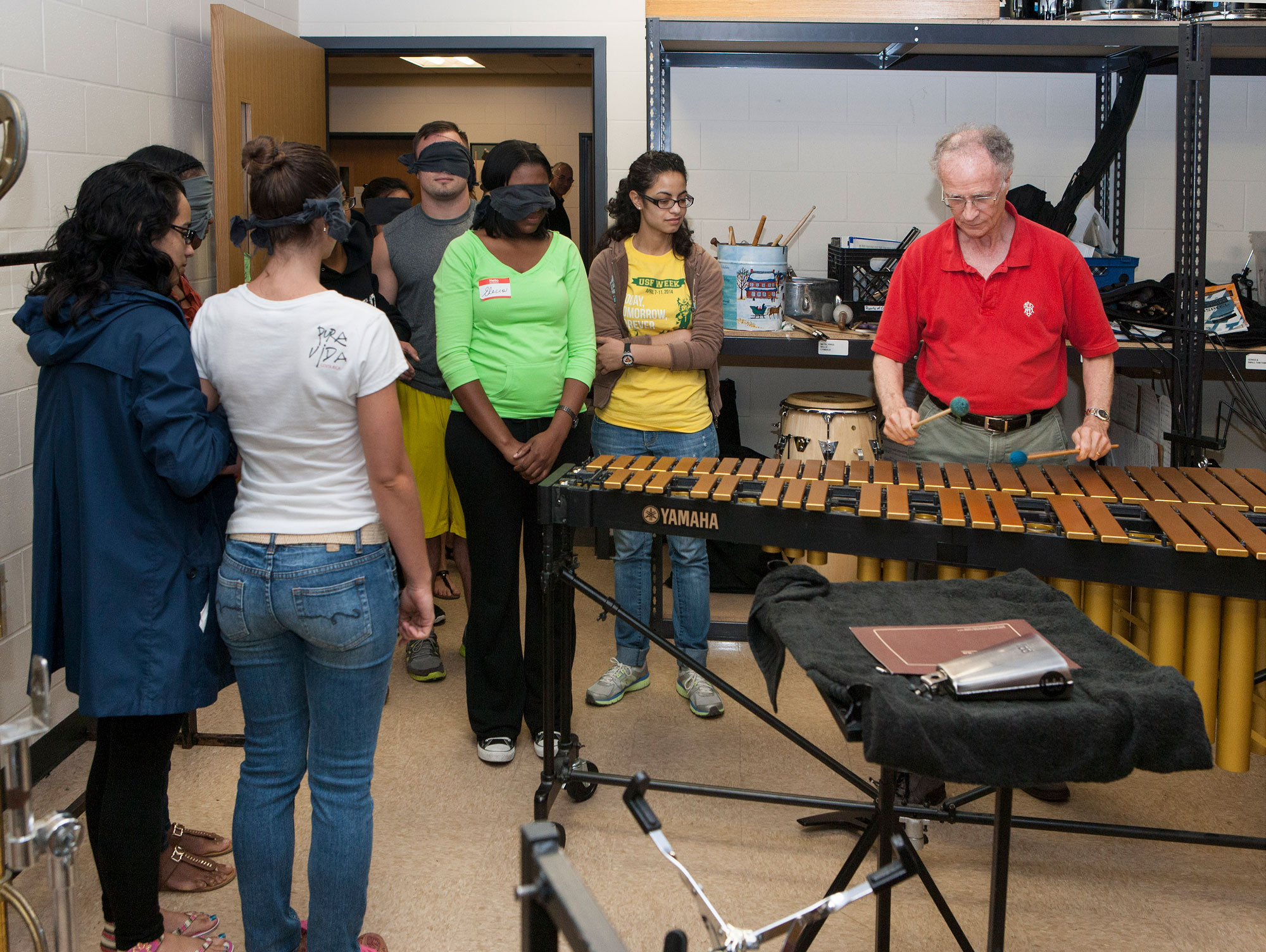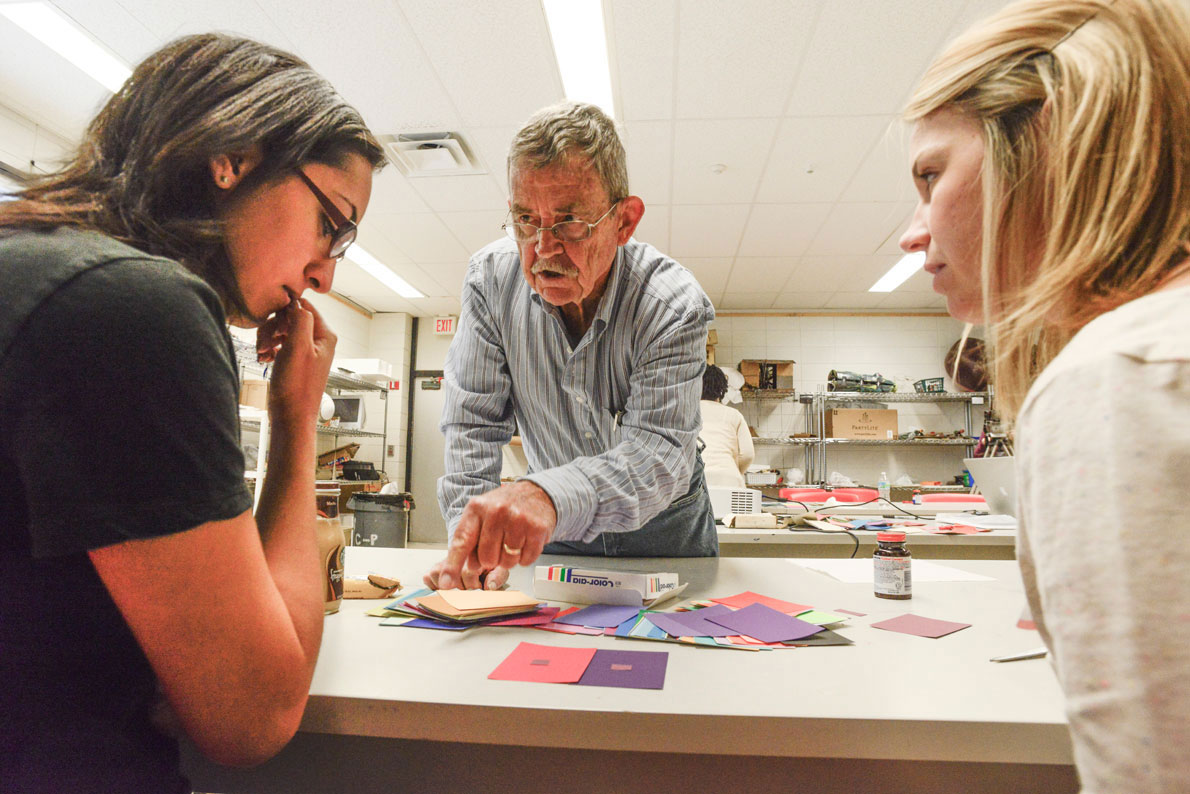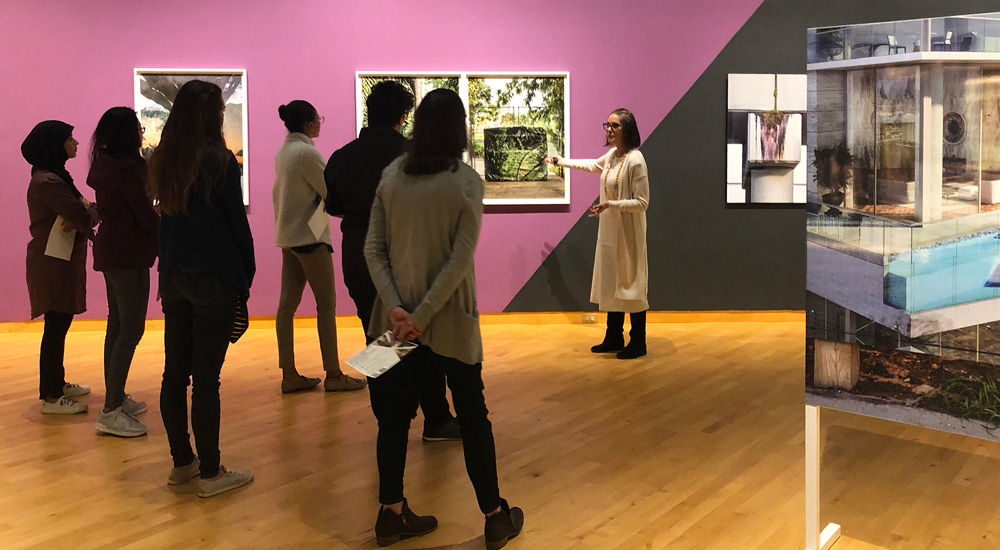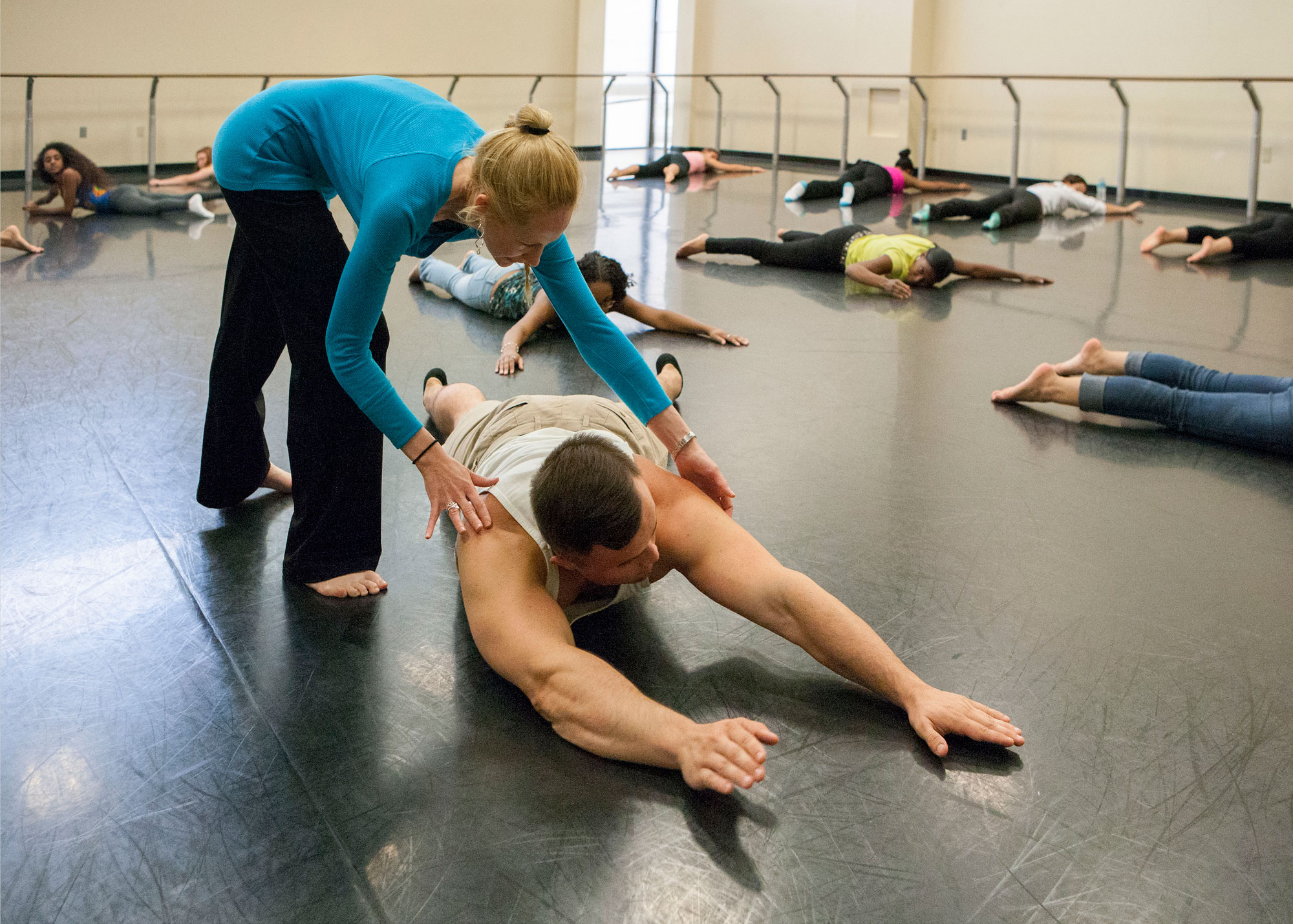VIRTUAL WORKSHOPS
All Art in Health Programming has been postponed through Summer 2021. Please stay tuned for official notice of future programming dates. We appreciate your understanding during this rapidly evolving situation. Please reach out to kbeauvois@usf.edu with any questions regarding programming.
USF Health Partnership
The Art of Attending
USF Health and The Institute for Research in Art have partnered to develop arts-based inter-professional education programming designed for graduate students in medicine, nursing, public and world health, pharmacy and physical therapy and training. Research shows that training health practitioners in arts skills improves visual observation, critical thinking, and communication skill.
The Art of Attending Workshops provide active, hands on experience to engage inter-professional groups in key concepts through arts processes. The series of five 2-hour workshops are led USF Arts faculty and Arts professionals and provide practice in close observation and multi-modal attending, inter-professional communication, critical thinking skills, heightened awareness and reflection. Each session concludes in end-cap discussion facilitated by a USF Health faculty member.
The series includes: Studio Art Workshop, Museum Workshop, Movement Workshop, Listening Workshop, and Improv Workshop. Sessions will be conducted with faculty from across the College of Arts via Zoom.
Students participating in Studio Art Workshop.
History
Art In Health @ USF was established in Fall 2012 as a partnership between the USF Contemporary Art Museum and USF Health to develop arts-based observation training for USF Health graduate students. The program drew inspiration from existing arts-and-medicine initiatives at Harvard University, Yale University, the University of Miami and other institutions and has developed into a multi-modal series that integrates arts based components in museum, visual studio, movement and listening. The USF Art of Attending Model was initially the subject of a three-year pilot study assessing student outcomes and learning. Assessment and development is ongoing.
Art in Health Instructors
Dolores Coe (Studio Art) is an artist, educator, and former Professor of Art and Program Director at Ringling College of Art and Design. Her paintings and mixed media works re exhibited regionally and nationally in museums and galleries and included in a number of public, private and corporate collections. She was awarded a resident fellowship at the Rijksakademie in Amsterdam and is a State of Florida Individual Artist Fellowship in Painting. She earned the MFA in Painting and an MA in Counseling. For more information, go to dolorescoe.com
Leslie Elsasser (Museum) Curator of Education at the Contemporary Art Museum, USF where she develops and facilitates interdisciplinary educational programs and events. Previously she worked as Visiting Professor at Ringling College of Art and Design, Educator at University of South Florida and University of Tampa creating and teaching studio art, design and non-western art history courses. Elsasser’s scholarly work concentrates on Indian Mughal Miniature Painting and she was the recipient of a Fulbright Fellowship to India 2003, artist in residence at Sanskriti 2003, 2005, and UCross 2012. Elsasser holds a BA in Art and Design from Rhode Island School of Design, an MA in Fine Art from the University of South Florida, and is a candidate for an MA in Art History from the University of South Florida.
Dan Granke, MFA, is a director, fight director, and movement specialist. He is a faculty member in the USF School of Theater and Dance where he teaches acting, mask work, and combat. His fight direction has appeared at The Public, Asolo Repertory Theatre, Florida Studio Theatre, Westcoast Black Theatre Troupe, American Stage, Urbanite Theatre, Tampa Shakespeare Festival, Stageworks, Jobsite Theatre, The Studio at 620, St Petersburg Opera, and Unto These Hills outdoor drama. He is a Certified Teacher of Stage Combat with the Society of American Fight Directors. His directing work has appeared at TRT2, Tampa Shakespeare Festival, and Theatre USF.
Bruce Marsh (Studio Art) is a Professor Emeritus with the USF School of Art and Art History and a painter pursuing a career involving representational painting. He has exhibited widely and produced a number of large-scale public art projects. During the past five years, he has been deeply involved in the development and operation of the new Firehouse Cultural Center in Ruskin, Florida. His painting, teaching, and community activities have been motivated by his interest in perception, communication and representation, and by his faith in the unlimited possibilities of the human mind and spirit. Visit brucemarsh.wordpress.com to view recent paintings by Bruce Marsh.
Merry Lynn Morris, MFA, PhD, is the Assistant Director for the Dance Program and a full-time faculty member invested in teaching and research. She holds a Master of Fine Arts (MFA) degree in dance performance and choreography from Florida State University and a PhD in Dance Studies from Texas Woman’s University. Dr. Morris has served on the faculty of the USF dance program since 1998. Dr. Morris’ dance/mobility chair project, which increases options for mobility and expands perceptions regarding disability, has received international recognition and has been featured at the Smithsonian Institution in Washington, DC, and in a wide range of broadcast and print media. She holds five U.S. Patents and is author of over 25 scholarly (print) publications, including conference proceedings and peer-reviewed journal articles. For more information, please visit artsanddisability.blogspot.com
Paul Reller (Listening), Associate Professor of Music, is a part of the Composition Department and serves as Director of USF's SYCOM (Systems Complex for the Recording and Performing Arts) Electronic Music Studio. Reller teaches electronic music, acoustic composition, and the History of Blues and Rock Music. Reller helped create the Bonk Festival of New Music, and his work has been performed at the Festival by Margaret Lancaster, Conrad Harris, Hilton Jones, and the USF Percussion Ensemble. Reller received a BM from the University of Minnesota and a Masters at the Eastman School of Music.
USF Health faculty facilitators include Marzenna Wiranowska, MS., Ph.D, Morsani College of Medicine, Dr. Cheryl Zambroski, College of Nursing, and Dr. Aurora Sanchez-Anguiano, College of Public Health.

For more information about USF Health and the other programs and services they have available, please visit health.usf.edu
VIRTUAL WORKSHOP SERIES
All Art in Health Programming has been postponed through Summer 2021. Please stay tuned for official notice of future programming dates. We appreciate your understanding during this rapidly evolving situation. Please reach out to kbeauvois@usf.edu with any questions regarding programming.
Internships
For more information on Art in Health Programming and to apply for internships, graduate projects or volunteer opportunities: email AIH-info@usf.edu.
Follow us
What Did You Learn?
Student Feedback (Spring 2014)
“I learned to be more perceptive of my surroundings. I became more aware of my own thoughts, movements and emotional response to different stimuli. I believe I will be more pensive and think more critically when approaching new situations and observing others. I will be more conscientious in how I carry myself, how others carry themselves and appropriate situations to adapt my energy and perspective.”
“In the art studio, I learned to look at things from different perspectives and assimilate whole things from pieces. In the [museum] workshop, I learned to interpret things objectively and express feelings associated with observation. In the movement workshop, I learned to use the control of my body to regulate my behavior or emotion.”
“The most important skills relate to leadership, especially the role of moderating in the art workshop. Other skills include abstract thinking, teamwork, appreciating the thoughts and views of other people."
“Increased observation skills—really looking for visual clues and details, not just big picture stuff. Not to rush in judging a situation/scene/person, careful deliberation, observation of verbal and non-verbal messages. Facilitation skills—particularly important when I enter an unknown culture and community with the goal of helping to promote their health. Feeling comfortable with being uncomfortable in some situations.”
Copyright + Reproduction
The electronic images available on this site are subject to copyright and may be covered by other restrictions as well. The images are made available to the general public for the sole purpose of representing the USF Contemporary Art Museum’s programs and collection. Copying or redistribution of the images in any manner without the express written permission of the University of South Florida Institute for Research in Art is strictly prohibited.
Contact
(813) 947-4773



